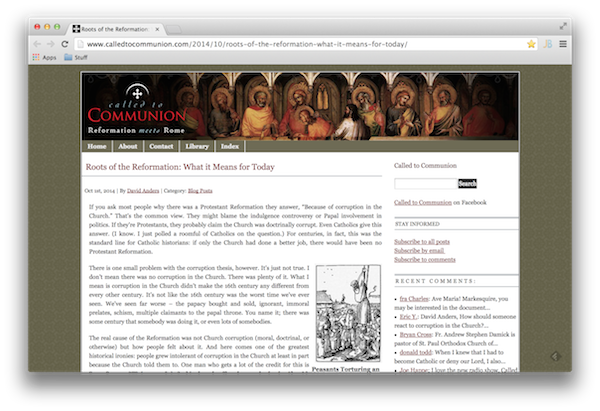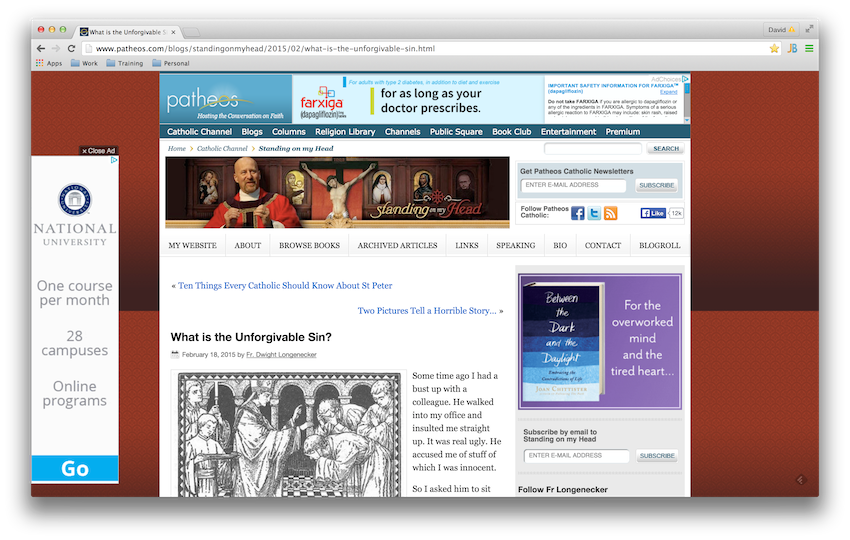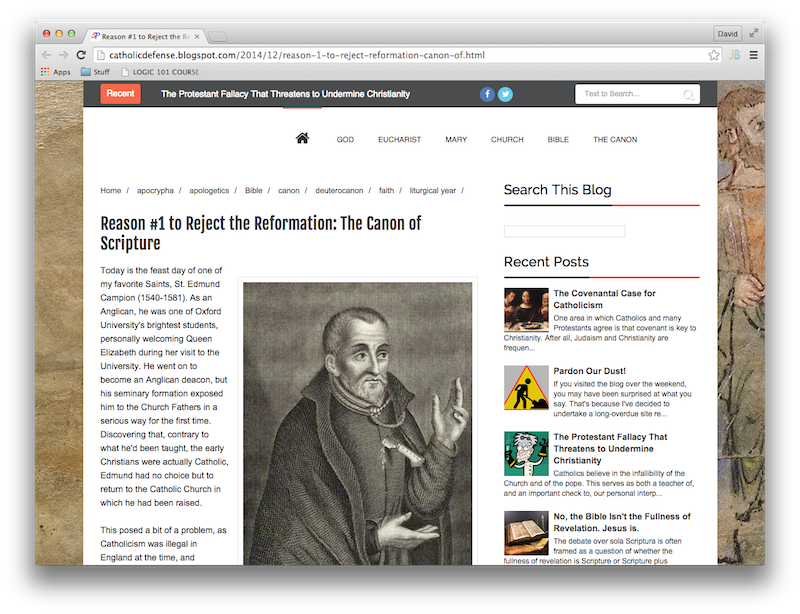Reformational Reasons
Here’s an article I really enjoyed from Called To Communion on the roots of the Reformation:

"We are travellers…not yet in our native land" – St. Augustine
Here’s an article I really enjoyed from Called To Communion on the roots of the Reformation:

We were talking about “the unforgivable sin” in Bible study a few weeks ago. Fr. Dwight posted an absolutely cracking article on it recently:

 It’s Theology On Tap time again!
It’s Theology On Tap time again!
In this previous round of talks, a local San Diego priest, Fr. Mark Menegatti gave a talk on one of my favourite Early Church Fathers.
Fr. Menegatti’s talk was on St. Augustine of Hippo. This was rather appropriate since Fr. Menegatti is himself an Augustinian! His talk was entitled: “Why everyone can read, know and love the Theologian Saint Augustine”
As usual, the talk is available for download below:
Main Talk (Download)
Q&A (Download)
While there was radio silence at the end of last year, Joe from Shameless Popery was busy at work. Not only did he give his blog a nice face-lift, he also produced an excellent series of posts, giving ten reasons to reject the Protestant Reformation:
Reason #1: The canon of Scripture Read more
Read more

 For my final month in San Diego, my Bible Study Group is going to be going through the epistles of St. John (1 John, 2 John, 3 John). However, this last week we reviewed our study of Ephesians. Here are the review questions the group came up with:
For my final month in San Diego, my Bible Study Group is going to be going through the epistles of St. John (1 John, 2 John, 3 John). However, this last week we reviewed our study of Ephesians. Here are the review questions the group came up with:
68. When was Ephesians written?
This letter is one of the “captivity epistles” and therefore was probably written during Paul’s Roman captivity in the early 60s.
69. What is significant about the destination of this epistle?
Mention of Ephesus in verse 1 is not found in the earliest manuscripts. It is therefore possible that this was a circular letter written to a number of congregations, one of which was Ephesus.
70. What was Paul’s relationship with Ephesian Church?
Christianity was present in Ephesus prior to Paul’s arrival. Paul used Ephesus as his base of operations for several years.
71. What does Paul write about in Ephesians?
Paul devotes most of the document to putting forth a vision of God’s redemptive work, brought about through Christ and manifested in the Church.
The Ephesians were mostly newly baptized Pagans and, because of this, some have referred to Ephesians as mystagogical catechesis.
Paul spends quite some time talking about “mystery”. This relates to Jesus’ sacrifice on the cross which draws man, both Jew and Gentile, back into relationship with God. This relationship is communicated through the Church, which has Christ as her head.
1-16 | 17-27 | 27-42 | 43-52 | 53-57 | 58-67 | 68-71 | 72-81
All Questions
It’s tragic to see that there’s no thought involved here…